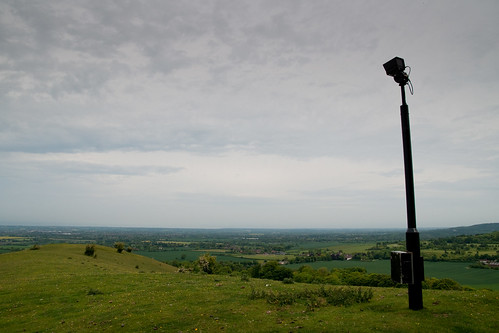I’ve been frankly awful detailing what I’ve been reading recently. So let’s try to right that wrong in 2010.
The book I’ve most enjoyed recently – if enjoyment is the right word – is Henry Porter’s new novel, The Dying Light.
Porter is British editor of Vanity Fair, but more relevant is that he was one of the people behind last year’s Covention on Modern Liberty and as well as writing for The Observer, he blogs at The Guardian’s Liberty Central Blog.
The Dying Light takes place in a post-2012 Britain in which we’ve moved on from Blair and Brown to a new Prime Minister, John Temple. The book opens as one of Temple’s previous aides, David Eyam is being declared dead – killed in an explosion in Colombia.
We follow Kate Lockhart, an old friend and lover, who’s catapulted into a Britain where our liberties have been evaporating in a slow but steady manner. Citizens are tracked and watched in a manner that Ceausescu might only have dreamt of.
What had Eyam uncovered? Who’s in on it? How can an overbearing State be defeated.
The themes of Porter’s novel are clear, and he paints a vivid picture of a world not far from our own. To that extent, his is the best fictionalisation of that fear that I’ve come across recently.
There was 2008’s BBC1 drama, The Last Enemy, that was ultimately unsuccessful. Given the propensity of Hollywood to take British political thriller TV series and remake then as films, this would be a good candidate for dramatising?
The book did have a stark reminders to me. Some of the action in the novel takes place in Chequers, the Prime Minister’s “weekend retreat.” The Prime Minister and his press secretary take a walk while they’re there to Cymbeline’s Castle, an earthwork on Beacon Hill. As it happens, I walked up that very hill last year and took this photo from that very spot.

Clearly, the camera is placed there, because it’s on the edge of the Chequers estate, but I think it’s somehow indicative of the society we’ve become, and we’re becoming.
The other aside in the novel that resonated was when one character, who studies Middle Eastern history in his spare time, talks about what a Sumerian astronomer was able to record with the help of a planisphere in 3123 BC. An asteroid hit the alps.
A very similar example appears in the current edition of New Scientist, relating to the Venus Tablet of Ammisaduqa from about 700 BC but recording events from 1000 years earlier.
In both the novel and the New Scientist piece, the gist is that much of our knowledge is stored in an ephemeral manner, and writing it down (or engraving it!) ensures that the knowledge lasts many thousands of years.
In these instances, the language was cuniform, and Radio 4’s fabulous new series, A History of the World in 100 Objects examines cuniform this Friday.
Anyway – I’m straying. This book is a real page turner and well worth reading.
The Dying Light
Tags:
